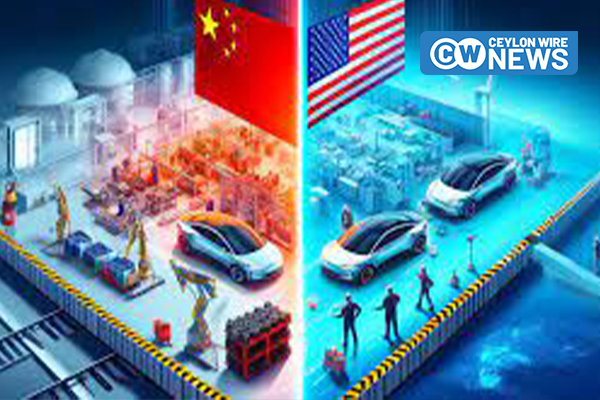China has successfully dominated the electric vehicle (EV) and battery manufacturing market. However, the US and the EU are stepping up their efforts in the EV sector, with US automaker Tesla leading the charge. Recently, the US and the EU have imposed stricter sanctions on Chinese companies due to perceived malicious trade practices, provoking Beijing to consider raising import tariffs to 25% on foreign-made large cars. If enacted, this move would significantly impact Western car manufacturers such as Maybach, BMW, and Mercedes-Benz, which produce their big engine cars outside mainland China.
Just last week, US President Joe Biden imposed steep tariffs on Chinese imports, specifically targeting EVs, increasing the rate from 25% to 100%. US officials have accused China of overcapacity in manufacturing to boost profits. Similarly, the EU has initiated investigations into Chinese companies across various industries, leading to a withdrawal of many Chinese firms from major rail and energy tenders. The rapid growth of the Chinese EV market is viewed with suspicion by the West, with allegations of over-exporting and cybersecurity concerns over the technology-equipped vehicles.
US Treasury Secretary Janet Yellen recently addressed the American Business Community in Guangzhou, China, expressing concerns about the global economic impact of China’s excess manufacturing capacity. She warned that overcapacity could lead to large volumes of exports at depressed prices, undermining businesses globally, including those in the US, India, and Mexico. Over-concentration of supply chains could also pose risks to global economic resilience.
Yellen noted that the European Union had launched an investigation into subsidies for Chinese electric vehicle exports to Europe. Many countries see China’s overcapacity as a growing threat, fearing that their own industries, particularly in EVs, batteries, and solar sectors, might be affected by artificially cheap Chinese exports. During her visit, Yellen also highlighted the bias against American companies in China, pointing out how their access to certain benefits is restricted, leading to unfair treatment.
Chinese Premier Xi Jinping recently visited Europe, attempting to dissuade the EU from distrusting Chinese companies. Xi is concerned that the EU might follow the US in imposing sanctions on Chinese firms. Currently, the EU is conducting a comprehensive investigation into Chinese EV manufacturers and will decide by June 5 whether to impose any tariffs. China has hinted at retaliatory tariffs on European wine and dairy products.
On May 21, 2024, the Chinese Chambers of Commerce to the EU (CCCEU) indicated that China might consider increasing temporary import tariffs on cars with large engines. Liu Bin, the chief expert at the China Automotive Technology & Research Center, suggested increasing the tariff rate on imported cars with engines larger than 2.5 liters. He argued that restrictive measures in the new-energy vehicle sector contradict the green development concept and harm consumers.
Tesla, America’s leading automaker, saw its sales drop to 2.3% in April 2024, according to a Year-on-Year report. Tesla produces vehicles in both Europe and China, and every third car sold in Europe is manufactured in China. Tesla is caught in the crossfire, facing stiff competition from local Chinese companies like BYD and losing market share in Europe. The Biden administration is aware of China’s aggressive global competition strategy, which affects many other major car manufacturers, such as Toyota, General Motors, Honda, and BMW. To counter China, the US has levied tariffs on Chinese firms involved in manufacturing chips, batteries, EVs, and minerals, impacting roughly $18 billion in annual imports. The US hopes that similar restrictions will be adopted by other countries, potentially triggering global competition against Chinese companies.









